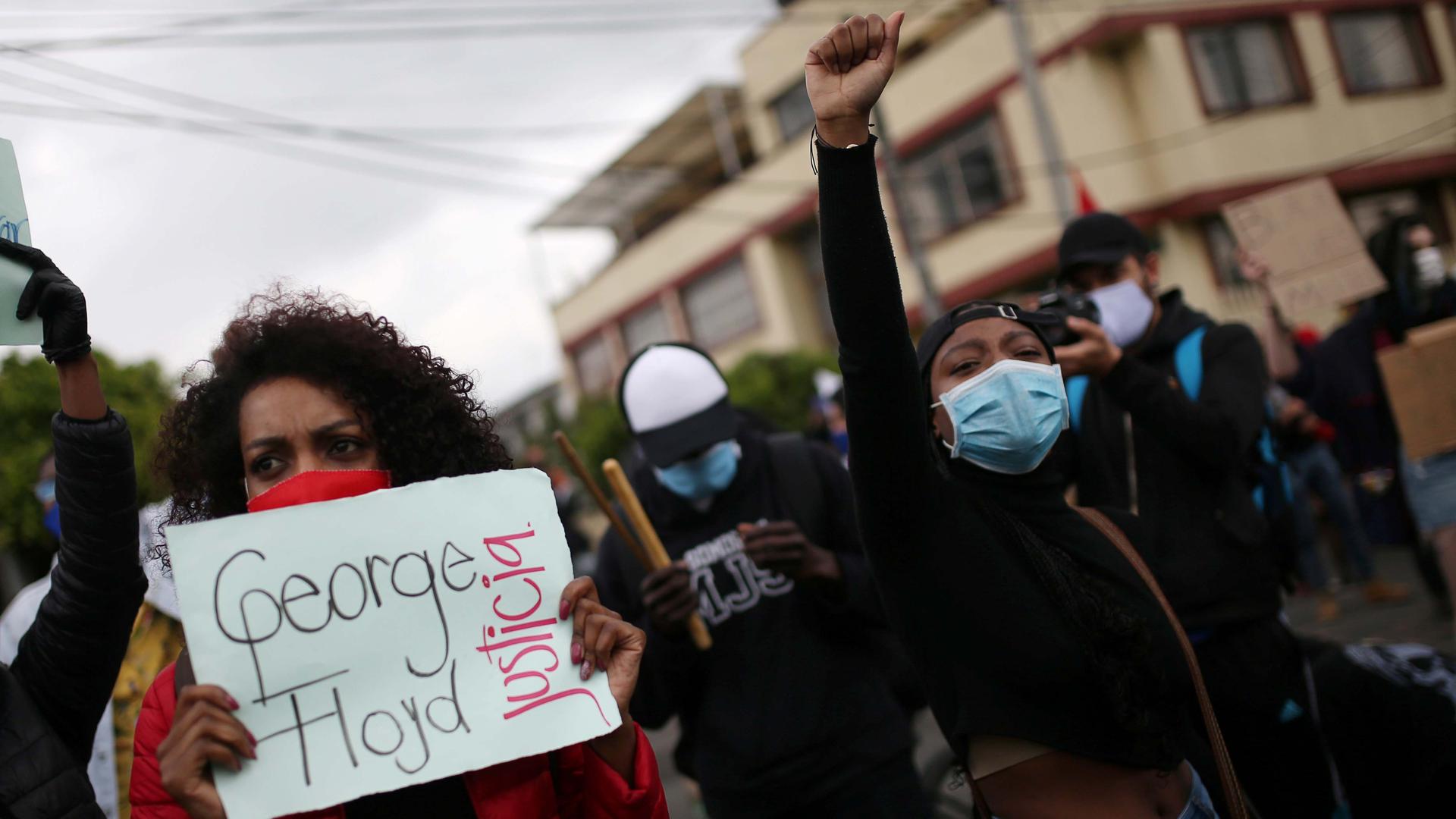One week before George Floyd was killed in Minneapolis, a young black man was fatally assaulted by police outside his home in a small town in southwestern Colombia.
Anderson Arboleda, 19, was chased by two police officers for breaking the pandemic curfew in the town of Puerto Tejada on May 20, his mother Claudia Ximena Arboleda said. When the officers caught up to him, they beat him over the head with batons and doused him in pepper spray. He died the next morning in a local hospital.
Arboleda, like many teenagers, loved eating, listening to music and hanging out with friends. And, according to human rights advocates, he died the way too many young black Colombians do: at the hands of the police. But it wasn’t until after a video of Floyd’s killing in Minneapolis went viral that Arboleda’s death became mainstream news in Colombia.
“It was strange for us seeing how these two stories went viral. The news media were doing special reports about George Floyd before they said anything about Anderson and the type of things that go on in our own country all the time.”
“It was strange for us seeing how these two stories went viral,” said Alí Bantú Ashanti, an attorney in Bogotá who directs Justicia Racial, a human rights group. “The news media were doing special reports about George Floyd before they said anything about Anderson and the type of things that go on in our own country all the time.”
While the history of police violence is different in every country, one common denominator across the Americas is officers’ disproportionate targeting of young black men. Floyd’s killing — and the protests it ignited worldwide — have given new life to debates over racial profiling in Colombia and Brazil.
Related: In France, the killing of George Floyd evokes the memory of Adama Traoré
In Colombia, young Afro Colombians face harassment from the police every day, Bantú Ashanti said. But their marginalization is wide-reaching. Afro Colombians have less access to health care and higher education and are more likely to live in poverty than the rest of the population.
“Colombia is particular in the way that racism has always been denied,” Bantú Ashanti said. “When we point this out, mainstream society says that we’re being resentful and that we’re calling out an issue that doesn’t exist.”
This is likely a legacy of the deep historical roots of colonialism and enslavement across the continent. While the United States institutionalized discrimination through Jim Crow laws that lasted until the 1960s, former Spanish and Portuguese colonies never formally legalized it.
“That kind of overt legal separation segregation did not occur in the modern Latin American republics. What you have instead in their case are ideas that tended to downplay discrimination and segregation.”
“That kind of overt legal separation segregation did not occur in the modern Latin American republics,” said Jerome Branche, a Latin American literature professor at the University of Pittsburgh who focuses on racialized modernity. “What you have instead in their case are ideas that tended to downplay discrimination and segregation.”
For example, in mainstream Brazil, it has long been believed that people of all races have equal access to opportunities. It’s a notion known as “racial democracy,” which for Paula Barreto, a sociologist at Federal University of Bahia in northern Brazil, has always has been and continues to be a myth.
Related: How one protester’s death by Colombian riot police polarized the movement
“Yes, we have color lines, we have racial segregation and we have racial inequalities,” Barreto said. “We have more black people concentrated in poor neighborhoods where the police are used to killing people.”
This is despite the work of Brazil’s modern black rights movement. In recent years, the Black Coalition for Rights has successfully campaigned against reversing affirmative action policies and against bills seeking to give the police more protections, as Americas Quarterly has reported.
But still, the recent protests in the US have helped bring attention to Brazil’s issue of racialized policing, Barreto said. Numerous statistics show about 3 of every 4 people killed by the police are black men. Barreto hopes the newly revived debate will inspire the country to do more for the civil rights of Afro Brazilians, she said.
“The American opinion and the international opinion about Brazil, in general, is important for Brazilians,” Barreto said. “Brazilians don’t want to see themselves as racists, and they don’t want to see their country associated with homicides of the black population.”
Our coverage reaches millions each week, but only a small fraction of listeners contribute to sustain our program. We still need 224 more people to donate $100 or $10/monthly to unlock our $67,000 match. Will you help us get there today?
